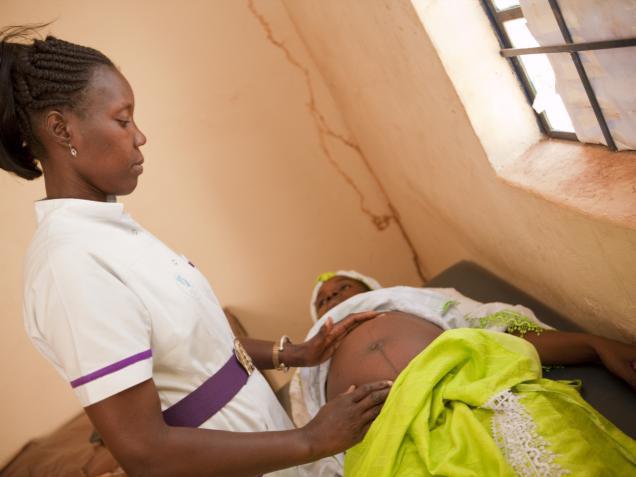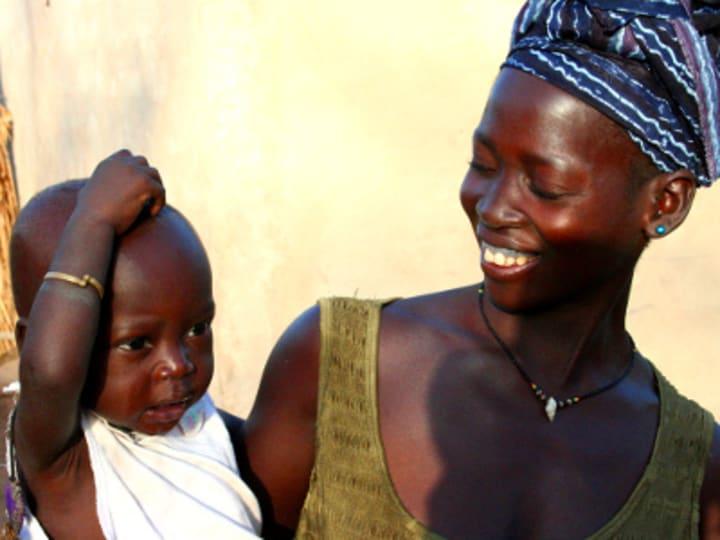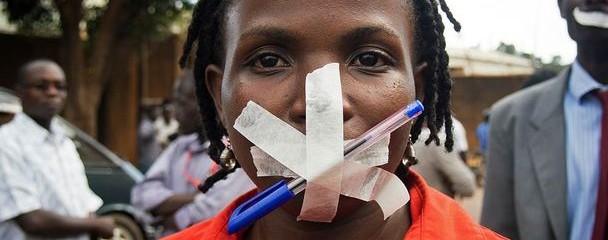
Debating Ideas is a new section that aims to reflect the values and editorial ethos of the African Arguments book series, publishing engaged, often radical, scholarship, original and activist writing from within the African continent and beyond. It will offer debates and engagements, contexts and controversies, and reviews and responses flowing from the African Arguments books.
Africa’s low death toll from the Covid-19 pandemic may look like a triumph, but behind the numbers lies a hidden tragedy as the virus impacts women’s access to healthcare.
At the time of writing, around 39,000 people across Africa have died from Covid-19 – with South Africa accounting for almost half of this total. In comparison to the United States’ 219,000 deaths, or India’s 114,000 reported deaths, the low death toll across the African continent – and in my own country, The Gambia, of just 118 people – seems like a success story. Perhaps our continent’s young population has contributed to the low numbers. Perhaps it is our learning from the experiences of our West African neighbours who have previously battled Ebola, that led to our triumph over the virus. Or, it could simply be that our case numbers and death rates are under-reported.
Whatever the reason behind the low numbers in Africa, it is a hollow victory. This dreadful disease took my mother from us. It almost took my husband. It almost took me. And the figures are hiding an uncomfortable truth. Indirectly, the virus will take thousands more lives as its impact is felt throughout our already overstretched health systems across the continent. The Covid-19 pandemic has shown us that our healthcare systems are broken.
In The Gambia, we only have around 200 physicians to care for our whole population, and only eight intensive care beds. Where we used to be the shining light for healthcare in our region of West Africa, we are now in darkness, relying on the Red Cross to help us deal with the crisis.
In the early days of the Covid-19 pandemic, the WHO warned of its potential impact on women. The Ebola outbreaks of 2014-16 had seen huge rises in maternal mortality rates (MMRs), and this new pandemic was expected to have similar effects as lockdowns forced women into home births, restricted access to contraception, increased the risk of gender-based violence, and exacerbated financial inequalities. And it seems that these concerns are already coming to pass, with the United Nations Population Fund (UNFPA) predicting up to seven million unwanted pregnancies as a result of the pandemic, and hundreds of thousands of potentially unsafe abortions adding to increased MMRs.
Pre-Covid-19, MMRs across Africa were already bad. Sub-Saharan Africa accounted for two-thirds of maternal deaths (about 196,000) around the world annually. In recent weeks, these numbers have skyrocketed, as mothers either deliver at home or are forced to attend private clinics to deliver, and thus don’t receive the specialist care that they need.
In The Gambia, the issue is being highlighted by the campaign Gambian Women’s Lives Matter. Campaign supporters are attempting to bring the issue to the attention of the Gambian government, and particularly the Ministry of Health, as women die from preventable complications in childbirth, most commonly hemorrhaging – a risk exacerbated by female genital mutilation (FGM). And they are not alone in their efforts. Global maternal health organization, Every Mother Counts, is leading a campaign to improve maternal health worldwide throughout the pandemic, and the United States’ Center for Disease Control (CDC) has also recently launched its Hear Her campaign in an attempt to reduce maternal mortality rates in the US.

How can we solve this crisis?
Across the globe, women undertake caregiver roles – both formally and informally. I contracted Covid-19 myself while caring for my mother, and research suggests that the pandemic has increased the number of women fulfilling these roles in their families and communities. Without them, the entire economy would simply fall apart, and if we cannot formally recognize their input, then they should at least be assisted in carrying out their work safely. There is a plethora of information available online about how to safely care for people with the illness, but this is of little use if it is not reaching the communities where it is needed.
During and after the Ebola outbreaks in Liberia, former President Ellen Johnson Sirleaf introduced community health workers who played a key role in not only countering Ebola, but also providing healthcare for women in remote communities and to those who were unable to access healthcare in more formal settings. These interventions yielded significant results in the communities in which they were deployed and could do the same across the continent for women too scared, or perhaps unable to afford, to go to hospital.
There are documented links between FGM and increased risks of excessive blood loss during labour. Yet the practice continues, and rates are likely to have increased during the pandemic. Not only because in-country programmes designed to stop the practice are being paused during lockdowns, but also because girls are at more risk of FGM being carried out when they are not in school, and families are seeking earlier marriages for their girls to obtain financial security.
Let us learn – and quickly – from previous experiences so that we can stop the Covid-19 pandemic’s effects from reaching more widely into our healthcare systems. Instead of undermining our health systems, we must use it as a catalyst to effect change where we can. To educate women on how to safely undertake caring roles. To bring healthcare into the heart of our communities where it can make a difference. And to finally stop a practice that endangers our girls throughout their lives.






